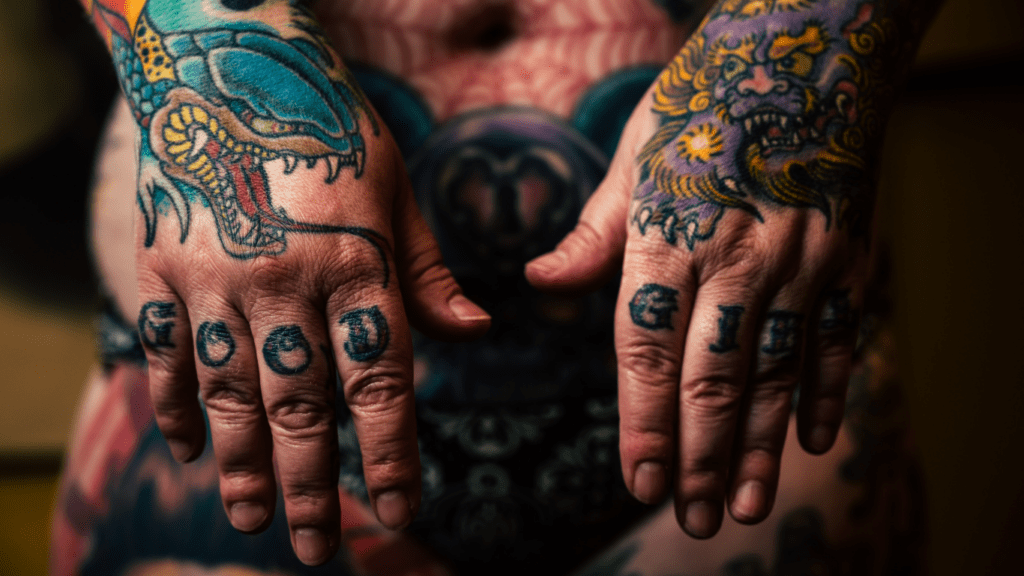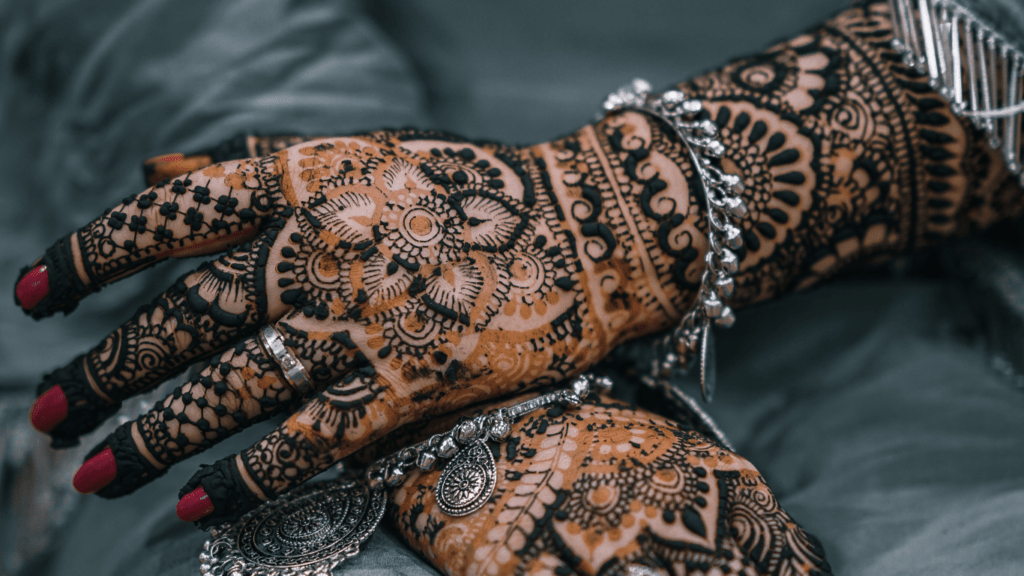The Evolution of Tattoo Symbols
Tattoo symbols have evolved remarkably over time, reflecting changes in culture, beliefs, and art.
Historical Perspectives
Historically, tattoo symbols held significant meanings tied to cultural identity and spirituality. Ancient Egyptians used tattoos to signify status and protect against evil.
Polynesian tattoos represented lineage, achievements, and rights of passage. In Japan, tattoos often symbolized strength and protection, seen in traditional irezumi body art. Sailors in the 18th century adopted nautical tattoos like anchors and swallows for good luck and safe voyages.
Modern Interpretation Shifts
Modern tattoo interpretations have shifted, blending traditional and contemporary elements. Today, tattoo enthusiasts often choose symbols for personal expression, aesthetic appeal, or social statements. Minimalist designs, like geometric shapes and simplistic lines, represent individuality and modernity.
Popular symbols like the semicolon have become emblematic of mental health awareness. Cultural appropriation concerns also shape contemporary tattoo choices, where there’s a growing emphasis on respecting original cultural meanings.
Common Tattoo Symbols and Their Meanings

Tattoo symbols often carry deep, personalized meanings. Here are some common ones and what they represent.
The Rose: Beauty and Pain
The rose symbolizes a mix of beauty and pain. Its delicate petals signify beauty, while the thorns represent the capacity to endure hardship.
This symbol often appears in vibrant, realistic styles. People choose roses to commemorate love, passion, or even loss. Different colors also add layers of meaning; red signifies love, while black can indicate grief or farewell.
The Dragon: Strength and Wisdom
Dragons symbolize strength and wisdom. Rooted in various cultures, Eastern dragons often represent benevolence and potent power, while Western dragons may denote a more fearsome strength.
This symbol, often depicted in elaborate, intricate designs, embodies both physical prowess and mental acuity. People choose dragon tattoos to signify their journey, personal growth, and resilience.
Anchors: Stability and Grounding
Anchors stand for stability and grounding. Originating from sailor traditions, this symbol signifies hope and steadfastness. Anchors are often chosen by individuals seeking a reminder of what keeps them grounded amidst life’s unpredictable currents.
Typically designed simply, with minimalistic or old-school styles, they can sometimes include additional elements like ropes or nautical stars to enhance their meaning.
Cultural Influences on Tattoo Symbolism
Tattoo symbolism varies widely, shaped by cultural contexts. Understanding these influences enriches the meaning behind popular symbols.
Eastern vs. Western Symbol Interpretations
Eastern cultures often imbue tattoos with spiritual and philosophical meanings. For example, in Japan, the koi fish symbolizes perseverance and ambition because koi swim upstream.
In contrast, Western cultures frequently use tattoos to represent personal narratives. A heart symbolizing love or a cross representing faith are common in Western body art. These cultural differences shape how individuals perceive tattoo symbols.
Indigenous Tattoo Traditions
Indigenous groups use tattoos to express identity, rites of passage, and spirituality. Native American tribes, for instance, often tattoo animals to signify clan affiliations and personal totems.
Maori traditions utilize the moko to symbolize genealogy and social status. By understanding these traditions, one can appreciate the depth of meaning behind indigenous tattoo symbols.
Choosing Your Tattoo Symbol
Deciding on a tattoo symbol means understanding its significance. Consider both personal and cultural meanings to make an informed choice.
Considerations for Personal Relevance
Reflect on personal connections to prospective symbols. A meaningful tattoo often resonates with:
- memories
- values
- beliefs
Some choose symbols like anchors which represent stability and strength.
Others opt for celestial bodies like the moon, associating them with intuition or change.
Research thoroughly before committing. Take time to explore the history and various interpretations of a symbol. Misunderstandings can lead to regrettable choices. For instance, lotus flowers represent purity and spiritual awakening in many cultures, but interpretations vary widely.
Connect the symbol to life experiences. Involving personal stories can add depth to your tattoo. For example, a feather might symbolize freedom for someone who has overcome significant challenges.
Impact of Symbol Choices on Perception
Recognize that tattoos carry societal perceptions.
- Symbols like skulls might convey rebellion or mortality, while hearts often signify love and affection.
- Consider potential workplace and social consequences.
- Some environments may have biases against visible tattoos. If choosing visible designs, be aware of possible social judgments.
- Ensure the symbol aligns with public image goals.
- While tribal tattoos can signify cultural heritage, misunderstandings can arise if they’re disconnected from your background.
- Authenticity holds significant value in maintaining respect for cultural symbols.
- Selecting a tattoo symbol involves personal reflection and awareness of societal perceptions.
Keep these factors in mind to make an informed and meaningful choice.


 Harriet Bellvovy, the visionary founder of Innov Art Foundry, has cultivated a platform that seamlessly bridges the traditional and modern aspects of the art world. Under her leadership, Innov Art Foundry has become a hub for the latest art news, keeping enthusiasts and professionals alike informed about significant exhibitions, breakthroughs, and emerging trends. Her commitment to fostering a vibrant art community is evident in the platform's comprehensive coverage, ensuring that artists and art lovers are always at the forefront of the dynamic landscape.
In addition to art news, Harriet Bellvovy has expanded Innov Art Foundry's focus to include art entrepreneurship, providing valuable insights for artists aspiring to turn their creative passions into thriving businesses. Her dedication to exploring diverse forms of artistic expression is further showcased in the platform's deep dive into tattoo art and the transformative role of virtual reality in the art world. Harriet's innovative approach continues to inspire and empower a new generation of artists, making Innov Art Foundry a vital resource in the contemporary art scene.
Harriet Bellvovy, the visionary founder of Innov Art Foundry, has cultivated a platform that seamlessly bridges the traditional and modern aspects of the art world. Under her leadership, Innov Art Foundry has become a hub for the latest art news, keeping enthusiasts and professionals alike informed about significant exhibitions, breakthroughs, and emerging trends. Her commitment to fostering a vibrant art community is evident in the platform's comprehensive coverage, ensuring that artists and art lovers are always at the forefront of the dynamic landscape.
In addition to art news, Harriet Bellvovy has expanded Innov Art Foundry's focus to include art entrepreneurship, providing valuable insights for artists aspiring to turn their creative passions into thriving businesses. Her dedication to exploring diverse forms of artistic expression is further showcased in the platform's deep dive into tattoo art and the transformative role of virtual reality in the art world. Harriet's innovative approach continues to inspire and empower a new generation of artists, making Innov Art Foundry a vital resource in the contemporary art scene.